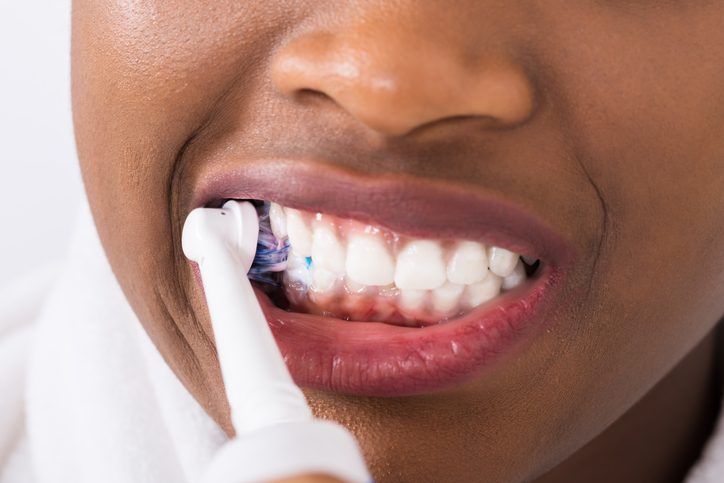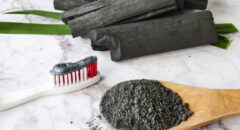
Activated charcoal is the new buzz-word health ingredient of the moment.
It’s literally a black toothpaste that claims to clean and whiten teeth and eliminate bad breath better.
And it’s starting to show up in healthy products all over.
So does Activated Charcoal work?
Activated charcoal is so porous, making it usable in emergency rooms. It can treat certain kinds of poisoning and overdose—by “soaking up” the poison. Charcoal prevents it from being absorbed into the stomach.
By this logic, some people believe activated charcoal can also be used to soak up toxins in the body (or in this case, stains on the teeth).
I honestly remember being given liquid charcoal to drink when I was battling food poisoning. It was said to help cover and get rid of the toxins making me sick–which it did.
Unlike the little bricks you use for your backyard barbecue, activated charcoal’s enormous surface area is dotted with the numerous nooks and crannies that draw in and trap toxic substances in your gut like a sponge, preventing them from being absorbed by the body by approximately 47 percent. The bad stuff is then carried out with your next bowel movement.
There have not been any long-term formal scientific studies on the effects of charcoal on the teeth, but short-term public use of the products has been favorable with people claiming to have brighter teeth and a clean feeling throughout their teeth and gums. Bloggers and vloggers claim that brushing with activated charcoal is an all-natural way to remove surface stains. This can be caused by coffee, tea, or red wine. You don’t even need bleach or abrasives. With many seeing results in as little as after one use.
Some use capsules and other use the activated charcoal powder, like this one shown here by Kissed By A Bee Organics.
Some claim to use Activated Charcoal like this
First, break open capsules of activated charcoal, mix the powder with water, then brush the thick black paste directly onto your teeth.
Others recommend swishing the powder around in your mouth or using a special toothpaste containing charcoal. After three to five minutes, rinse away the charcoal (and stains).
With that said, because charcoal is a naturally abrasive ingredient. If you do decide to use activated charcoal toothpaste, dentists agree that you should do so cautiously and sparingly. Brush with it no more than once a week. And not for an extended period of time, even if your teeth feel normal.
Activated charcoal shouldn’t replace everyday teeth cleaning and regular visits to the dentist. The important part of brushing and flossing is the physical removal of plaque. The toothpaste you’re using, from a dentist’s point of view, delivers fluoride to teeth. Fluoride in your toothpaste is nature’s cavity fighter and can cut tooth decay by up to 40 percent.
Remember, if you do go the do-it-yourself charcoal route, use it sparingly. Discontinue its use if your teeth become sensitive. If you see a reaction to your lips or gums, you should discontinue use. This could mean gums bleeding, bumps, or anything out of the ordinary.








